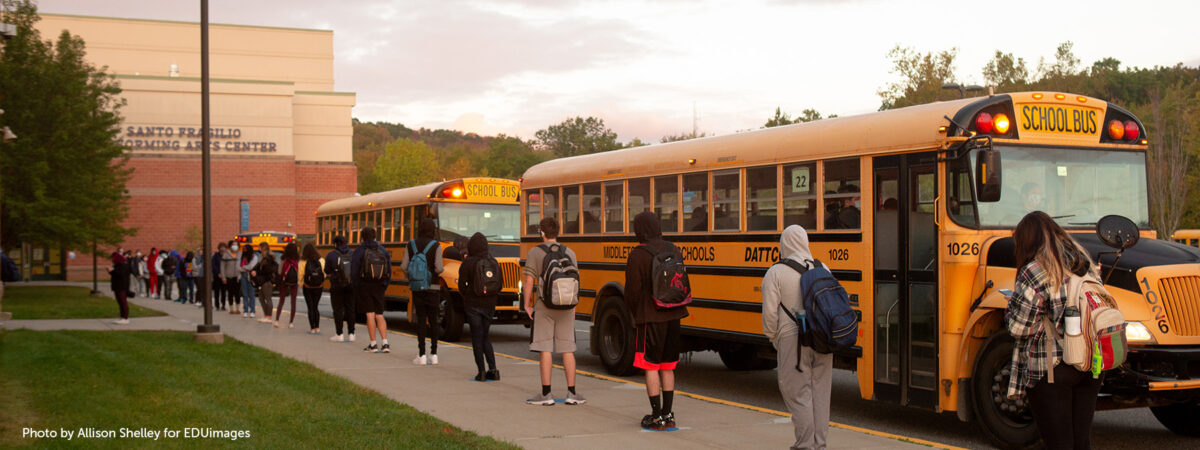
The COVID-19 pandemic posed unprecedented challenges to STEM education, research, and the workplace. We conducted a content analysis of materials authored by more than 100 National Science Foundation (NSF) award recipients to synthesize the NSF-funded research conducted during this period. Below we share research recommendations from 72 unique awards that spanned five NSF directorates and 25 program areas.
One lesson from the pandemic is the necessity for local and state education agencies to take a more proactive role in promoting equitable opportunities in K-12 STEM instruction. A number of studies revealed significant variations in state guidance documents for delivering remote instruction, with varying levels of emphasis on equity. Teachers, too, received differing levels of guidance and support for transitioning to online teaching.
Recommendation: These disparities highlight the need for consistent and equitable support, especially when preparing for potential future disruptions.
The largest body of research during the pandemic focused on undergraduate remote courses and research experiences, underscoring the potential of online environments to provide equitable spaces for STEM learning. Notably, remote summer research programs yielded positive gains in self-efficacy and science identity, akin to in-person experiences. Moreover, students and instructors familiar with digital tools found the transition to online learning easier.
Recommendation: Additional research is needed to explore the optimization of digital tools to enhance the effectiveness of remote teaching and learning.
Research into graduate students and programs shed light on the impact of the pandemic on academic trajectories and how institutions responded to the pandemic. A significant shift occurred as graduate programs adopted online processes for routine degree-related activities. E-mentoring emerged as an effective approach, particularly with frequent interactions. Students in disciplines requiring on-site data collection for research encountered notable delays.
Recommendation: To support graduate students in the post-pandemic era, graduate programs must emphasize work-life balance and student well-being.
The pandemic took a toll on the mental health of administrators, teachers, students and their families. Latinx and international students, in particular, experienced heightened stress levels, necessitating targeted support. Mindfulness activities proved effective in reducing distress.
Recommendation: To address mental health concerns, there is a need for longitudinal assessments of adolescent mental health and the promotion of work-life balance.
Research in this category explored public perceptions and misperceptions of COVID-19, as well as decision-making related to preventative behaviors. Personal experiences, often conveyed through narratives, played a significant role in shaping people’s understanding of the virus and influencing their precautionary measures.
Recommendation: Future research should delve into utilizing data science to personalize learning and improve individuals’ comprehension of quantitative data related to socioscientific concerns.
A subset of studies employed innovative methods to examine remote education in the context of families and homes. For instance, remote diaries documented how families navigated homeschooling, leading to the discovery of new support strategies. Changes in children’s screen time were correlated with childcare availability, reflecting the broader impact of the pandemic on families.
Recommendation: Research and development of tools for communication and collaboration between teachers and caregivers is recommended to enhance remote learning systems further.
Awards in this category explored the impact of the pandemic on work practices and academic research. Findings indicated that individuals who applied STEM knowledge on the job experienced greater employment resiliency, even in roles not classified as STEM occupations. Additionally, the pandemic had a disproportionate impact on women, with many leaving the labor force due to a lack of childcare.
NSF-funded research conducted during the COVID-19 pandemic has provided valuable insights into various facets of STEM education, mental health, and work practices. The findings underscore the importance of centering equity in education, the need for preparedness in the face of future disruptions, and the necessity of adapting educational and work environments to the evolving landscape. These lessons can guide policymakers, educators, and institutions as they navigate the challenges and opportunities encountered in the post-pandemic era.